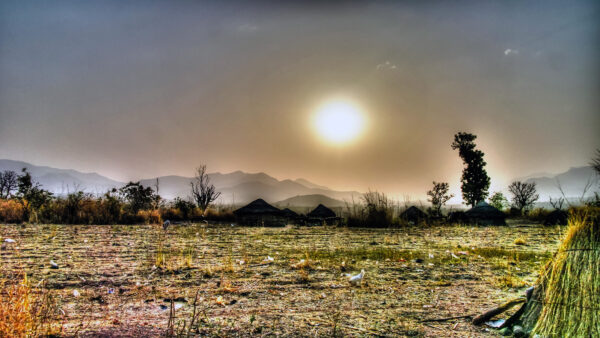
Let’s talk weather — a topic that is neutral and relevant to everyone. In many parts of Africa, the weather dictates people’s livelihoods and determines how much food will be for dinner. So it makes sense that many African languages place additional emphasis on words and expressions related to Mother Nature and all her whims.
This is true for Fulbe, the language of the nomadic Fulani people of Central and West Africa. The 27 million Fulani live in the arid, sparsely populated countryside spanning from Mauritania in the west to Sudan in the east.
In northern Cameroon, Fulfulde is actually the lingua franca; non-Fulani also speak it on a daily basis. With over 200 tribal languages in Cameroon, a unifying, local language emerged along with the official languages of English and French. Fulfulde became the dominant language in the north, just as pidgin English became the dominant language in the country’s western areas.
The Fulani of Cameroon herd cattle and roam the rural areas according to the seasons, often crossing country borders indiscriminately.
There is one rainy season, which lasts roughly from May to October. During this time, it’s humid with downpours that last ten minutes to several hours. Farmers plant their fields during this time (as there is no irrigation system or potable water service for that matter), hoping for consistent rain so that crops will yield a good harvest.
For the Fulani, a good rainy season means enough grass for their cattle, which in turn means enough milk and meat to feed their families, and enough skins to trade with or to sell for other essentials.
In other words, it’s all about rain — and their language reflects this:
Rain: iyeende
To rain: toba
To pour (to rain a lot): rufa
Rain cloud: naargewol (vs. regular cloud: ruulde)
Last rain of the rainy season: wowtere
Drought in the middle of the rainy season: hokkere nder ndunngu
Drought at the beginning of the rainy season: hokkere nder nalbere
To spend/pass time during through the rainy season: ruuma
Smell of the wet/damp earth after it rains: kisri
Note that Fulfulde is an oral language. The written form is relatively new, spurred by the arrival of Christian missionaries at the turn of the 20th century. Hence the translations above may be written differently depending on the source text.
Want to learn more Fulfulde? You’ll first need to learn some French, as most of the Fulfulde dictionaries were created by French missionaries. Try: “Vocabulaire peul du monde rural” by Henry Tourneux and Yaya Dairou or “Dictionnaire Foufouldé-Française” by Dominique Noye.
Insights for global growth






Power your strategic growth
Go beyond tactical localization with tailored, strategic solutions that resonate locally and drive growth globally.
Get started
